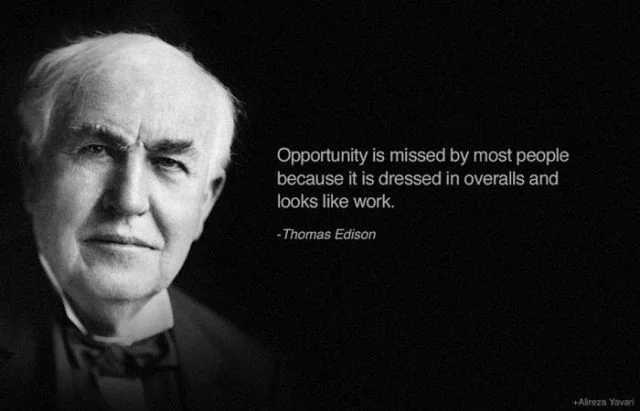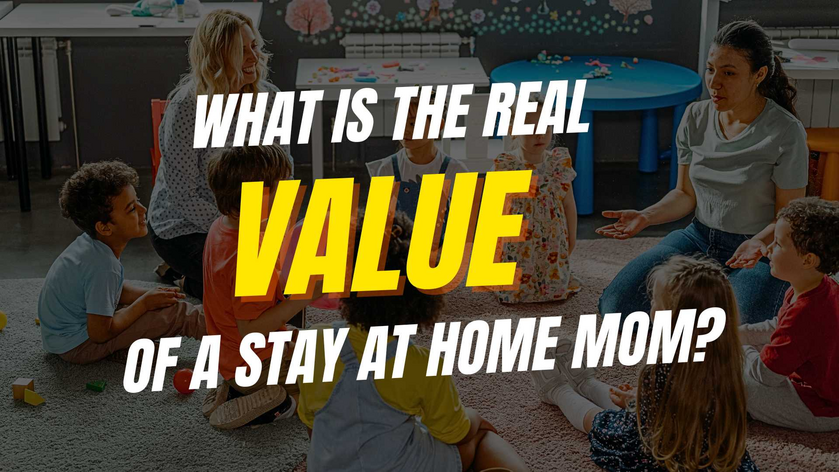So many people want to find deeper meaning in their lives. We have thousands of self-help gurus who will tell you that there are as many easy ways to find purpose and happiness in daily living.
Speak affirmations to yourself in the mirror.
Stop hanging with people who challenge you to be better; instead, pursue those who accept you as you are.
Believe that you are worthy of good things - that karma will have its day so long as you pursue the vague notion of becoming a “good person”.
These are all ideas that sound nice in theory, feel good in practice, and ultimately lead you right back to where you started. That is, of course, unless you are able to practice them with enough fervor that you can achieve self-delusion and narcissism.
For the rest of us, we have to find another path. I think the direction we need is found in this famous quote from Thomas Edison:

The same is true for purpose. Most people missed it because they think it’s something they can find on an inward-focused journey. They wrongly believe that purpose is something you find or that importance is something you are owed by the world.
This is why you will find young people online with immense levels of entitlement. People will call themselves kings and queens even though they lead no one. We like to crown ourselves with achievement and glory that we have not earned. And who can blame us when we were, as children, given trophies after our losses, which were the same size as those given to the victors?
I’m here to tell you the hard truth today: purpose is not something you find. It is something you create. Perhaps more accurately, it is something you embrace.
For most of us, purpose, fulfillment, and meaning are not some distant far off thing we must discover. Rather, they are constantly in the room with us, waiting us to choose the hard right over the easy wrong.
Do you want to know when I was most empty inside? It’s when I was 15 years old. I was smoking weed nearly every day, sometimes even before school. I quit the basketball team because I had gotten lazy and worse at the game. I was a habitual liar and used the people around me as I pleased.
Do you want to know when I’ve been the most fulfilled? It’s when I’ve been generous with my time and money. It’s when I’ve embraced responsibility in leading my family. It has come from taking ownership of my spiritual, mental, and physical health. It has come from striving for excellence in the workplace and rising in the weight and responsibility I bear on a daily basis.
My emptiness came from a hedonistic life focused exclusively on satisfying my own desires. Deep meaning and purpose have emerged from a life dedicated to serving God and others.
Many young people fail to understand this. They go from place to place looking for what some institution or person has to offer them. They take this mindset to church, to the workplace, and to dating.
Then when they find themselves frustrated and unhappy they blame everyone but the person in the mirror:
“The Church doesn’t care enough about young single people.”
“Corporate life is draining and miserable.”
“The dating world is so hard and unfair and toxic.”
And yet, there is one common denominator in all of this. The world wants you to look inward for purpose and outward for blame. When we are willing to look inward for blame and outward for purpose, things begin to change.
There is one simple question we need to ask to transform our experience in this life. And that is, “how can I help?”
How can I add value here? How can I make someone else’s life and experience better? How can I make this world, this parish, this company, this family, etc., better?
When you pray with this question, your entire perspective begins to change. You no longer show up on Sundays just waiting to receive - from the homily, from the parish offerings, the free donuts. You now show up thinking - I should introduce myself to someone I haven’t seen here before. I should pick up that trash that has fallen to the ground. I should volunteer for that task for which they requested help during announcements.
The same is true in family life. Instead of plopping down on the couch after Thanksgiving dinner, you help wash the dishes. You volunteer to take your cousin to the airport for their early morning flight. You spend a few extra minutes with that great-aunt of yours who speaks somewhat incoherently - not because it pleases you, but because it means a lot to her.
Purpose is not something that is distant and needs to be discovered. It is right in front of you every day. It’s just that it’s dressed in overalls and looks a lot more like hard work than you imagined it would.





















